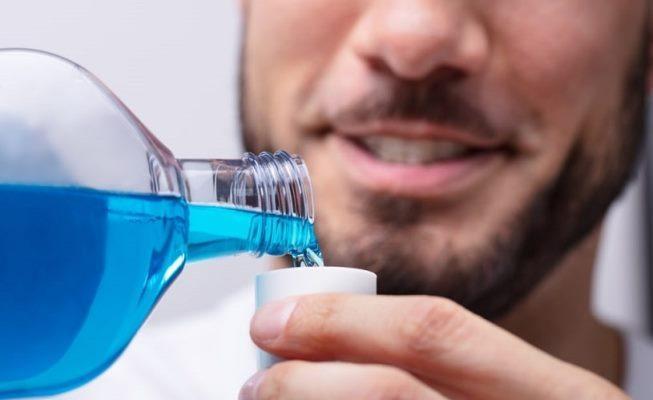A 77-year-old man suffered from impaired vision in both eyes due to the use of a large amount of mouthwash, which he consumed for more than a year after root canal treatment.

After the man stopped using mouthwash, his vision improved. The source reports only one such case, but it raises awareness that chronic use of over-the-counter mouthwash can lead to toxic optic neuropathy.
“Chronic mouthwash should be avoided as it can cause severe vision loss even in the absence of other risk factors,” write co-authors Dr. Rod Forozan and Dr. Francesco Pellegrini of Baylor College of Medicine in Houston.
77-year-old man with painless vision loss
For one year, the man experienced painless vision loss in both eyes. Due to high blood pressure, he took aspirin and atenolol, but was otherwise healthy.
Despite undergoing cataract surgery a few months ago, the man's visual acuity continued to decline. Neurological examination and contrast-enhanced magnetic resonance imaging (MRI) of the brain revealed nothing unusual. In addition, the man underwent genetic testing for Leber's hereditary optic neuropathy and autosomal dominant optic atrophy, as well as testing for complete blood count, comprehensive metabolic panel, C-reactive protein, erythrocyte sedimentation rate, vitamin B12, and serum thiamine. All test results were within normal limits.
The patient underwent optical coherence tomography (OCT), which is unremarkable. In addition, the thickness of the peripapillary layer of retinal nerve fibers was within the normal range.
Doctors determined that the man's visual field defect was central and extended to his blind spot, which meant he was experiencing optic neuropathy or macular degeneration. Since his OCT scan was normal and there was a decrease in the ganglion cell complex in each eye, optic neuropathy was suspected to be the cause of his vision loss.
Common causes of this type of visual field loss are toxic or nutritional optic neuropathy and hereditary optic neuropathy. It is unlikely that dominant optic nerve atrophy has led to a deterioration in vision, since such a cause causes chronic progressive loss of vision over many years. Alcohol use, heavy metal toxicity, and vitamin deficiencies can also cause toxic optic neuropathy. Therefore, a careful history is critical.
Only additional information made it possible to establish a diagnosis
To confirm the diagnosis, the patient was asked additional questions. The man reported that he ate meat, drank less than one glass of wine a day, and did not smoke, and his family history was negative for eye disease.
In the end, the patient remembered that 18 months earlier he had treated the root canal of the tooth. He reported that after the endodontic procedure, he began to consume a glass of mouthwash at least three times a day after brushing his teeth. Based on the examination and medical history, the man was diagnosed with bilateral toxic optic neuropathy.
After stopping the mouthwash, the man's vision improved. According to the doctors, during the three-month follow-up visit, his vision did not worsen.
